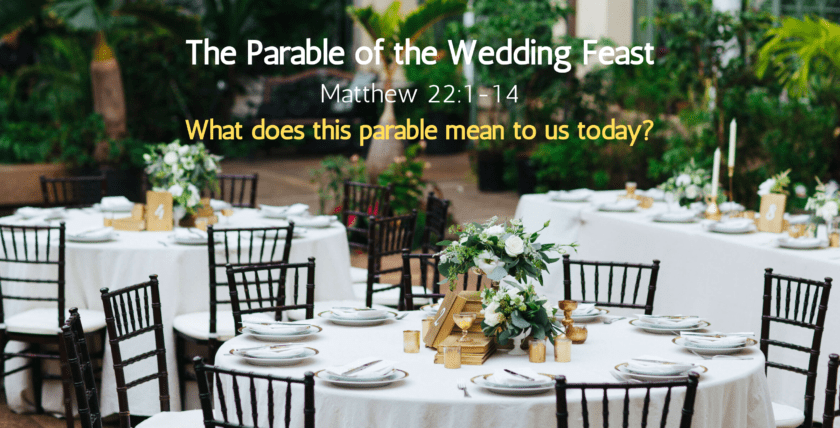Today we have accepted the government, corporate, and institutional takeover of our personal responsibilities.
- Education; parents are told they don’t know what their children need to learn.
- Finances; institutional banking says to be chipped for our financial protection.
- Safety; we don’t need police or prisons or jails.
- Health; if the government says gas stoves are a health risk, we say OK.
- Biology; if institutional science says biology is not physical, we shrug.
- Earth; if environmental institutions say we’re killing the earth, we listen.
- Speech; if we’re told words are hateful not people, we say makes sense.
- Faith; institutional religions say do this or that and we follow blindly.
The human race is allowing itself to be controlled by our governments, institutions, and corporate fathers and mothers because they are quietly convincing us we can’t handle the big responsibilities of our lives.
A. Who is Responsible for your faith?
Who is responsible for your faith and your relationship with Jesus Christ? The Church? A church leader? A denomination? As we have discussed in other episodes, the church is modeled after the synagogue format. Since the disciples were Jewish this was familiar to them; In Acts 7:38-39 Stephen calls Israel in the wilderness with Moses a congregation (ekklesia; church).
In this “church”, Moses was their leader/prophet/apostle, and Aaron, the brother of Moses, was their priest. But in their hearts, they never left Egypt. Why? Faith and trust are personal…
This authority leadership model was Jewish. The synagogue decided was acceptable and unacceptable religious practices. Is this the model Jesus established for the church?
The Temple, rituals, and traditions were a shadow of the things to come. Jesus fulfilled the Torah Laws, the Prophets, traditions, and rituals. Everything previous to Jesus was a shadow of what was to come (Hebrews 10:1 & Colossians 2:16-17).
If everything before Jesus was an obscured image of what he would do, shouldn’t what comes from what he did be uniquely different?
Jesus said he came to set the captives free. One minute you are in prison, then the cells are opened and you’re free. No more guards, warden, or prison rules, you are free. But instead, it was a prisoner exchange, not a release. Congregational leadership determines permissible and impermissible behavior. Even though the Spirit was sent into the world to teach us all things.
But God gave us Pastors, teachers, etc. to teach us – that was a different time. People couldn’t read, they had no access to books. There was extreme wealth and extreme poverty. But the society of the disciples is not the society we have today.
What authority was given to the Disciples? The only authority given to the Apostles was to drive out demons, cure diseases, proclaim the kingdom of God, and heal the sick. (Luke 9:1-2 and Matthew 28:18-20)
The responsibility for our faith is on you and me, not church leadership (Philippians 2:12-13)
We have unprecedented access to hearing and reading the word. Is the availability of the word an accident? No, God’s Spirit has made it available to all.
But you might say, “How can I be responsible for my faith, I don’t know enough.” Who says you don’t know enough? How much do you need to know? Jesus came into the world, he died for our sins, the Father raised from the dead and gave him authority over everything, and all who have faith in him will live forever.
Since we’re responsible for our faith we have some guidelines, not laws, not doctrines, but guidance for our journey in the freedom Christ gave us in our faith relationship with him.
B. Living Freely in Your Faith: Romans 14:1-9
- Unity – You are free to have opinions and free to let others have opinions also
The first verse says to receive all who believe in Jesus Christ regardless of their differing viewpoints or opinions. The same is said in Luke 9:49-50.
There is believing by discrimination how one lives as a Christian, and there is having faith in the life one lives as a Christian. Where scripture is clear, there are no opinions or viewpoints. We have the 10 commandments which are summed up in the two commandments from Christ; Love God and Love your neighbor. The encouragement to love is the overwhelming factor of Christian freedom.
2. Love others (v. 2-3) You are free to love others
1 Corinthians 13:4-8 tells us what love does and doesn’t do. Don’t judge the discernment or faith of others. It isn’t about what one person does and what another person doesn’t do. It’s about not judging each other. Eating or not eating food is a principle. Long hair, beards, jewelry, working in a bar, dancing, abortion, and birth control, are not spoken of specifically in scripture but are a matter of interpretation or opinion. God has welcomed them or taken them to himself, therefore who are we to not also take them into ourselves?
3. Truthfulness (v. 4) You are free from Judging others or being judged by others.
In Matthew 7:4-5 Jesus explains the problem with judging others very clearly. Who are we to judge another? God deals with every believer individually.
4. Faithfulness (v. 5) You are free to have convictions your own convictions, but be faithful to those convictions.
James 1:22-25 tells us that being faithful requires that we avoid being a hypocrite. We must be fully convinced in ourselves of the things we do or don’t allow in our life. If we aren’t fully convinced that we should or shouldn’t do something, then don’t be a hypocrite by doing it or not doing it
5. Honor God (v. 6) You are free to practice your faith.
In 1 Corinthians 10:31 Paul agrees that as long as what we do or don’t do can be done to honor or thank the Lord then it is between the one giving and Lord.
6. Trust God/Surrender (v. 7-8) You are free to live without worry.
In Luke 12:25-26 Jesus says that no one controls whether they live or die. Therefore whether living or dead we belong to the Lord. So there is no sense in worrying about life because God is God of all.
7. Humble yourself before God (v. 9) You are free to surrender to Christ
We don’t answer to other humans. We only answer to Jesus Christ. This is why he came into the world so that we would know that the righteous one was the arbiter for everyone. The purpose of the death and resurrection of Jesus Christ was to obtain complete authority over everyone and everything (Philippians 2:10-11).
C. Faith to Faith; Romans 1:16-17
- Faith to believe the Gospel – made righteous by faith
- Faith to live the Gospel – live righteous forever by faith
We had the faith to believe in Jesus Christ which made us righteous in the sight of God because of his Son. Then we have faith when we go to be with Jesus to be made righteous forever. Faith from first to last
CONCLUSION:
You Own Your Faith – God is working in you for the strengthening of your faith.
Freely Live Your Faith – In Unity, Love, Truthfulness, Faithfulness, Honor God, Trust God, Be Humble Before God. (Without Condemnation)
Faith From First to Last – From the faith to be pronounced righteous to the faith to be made righteous forever.


